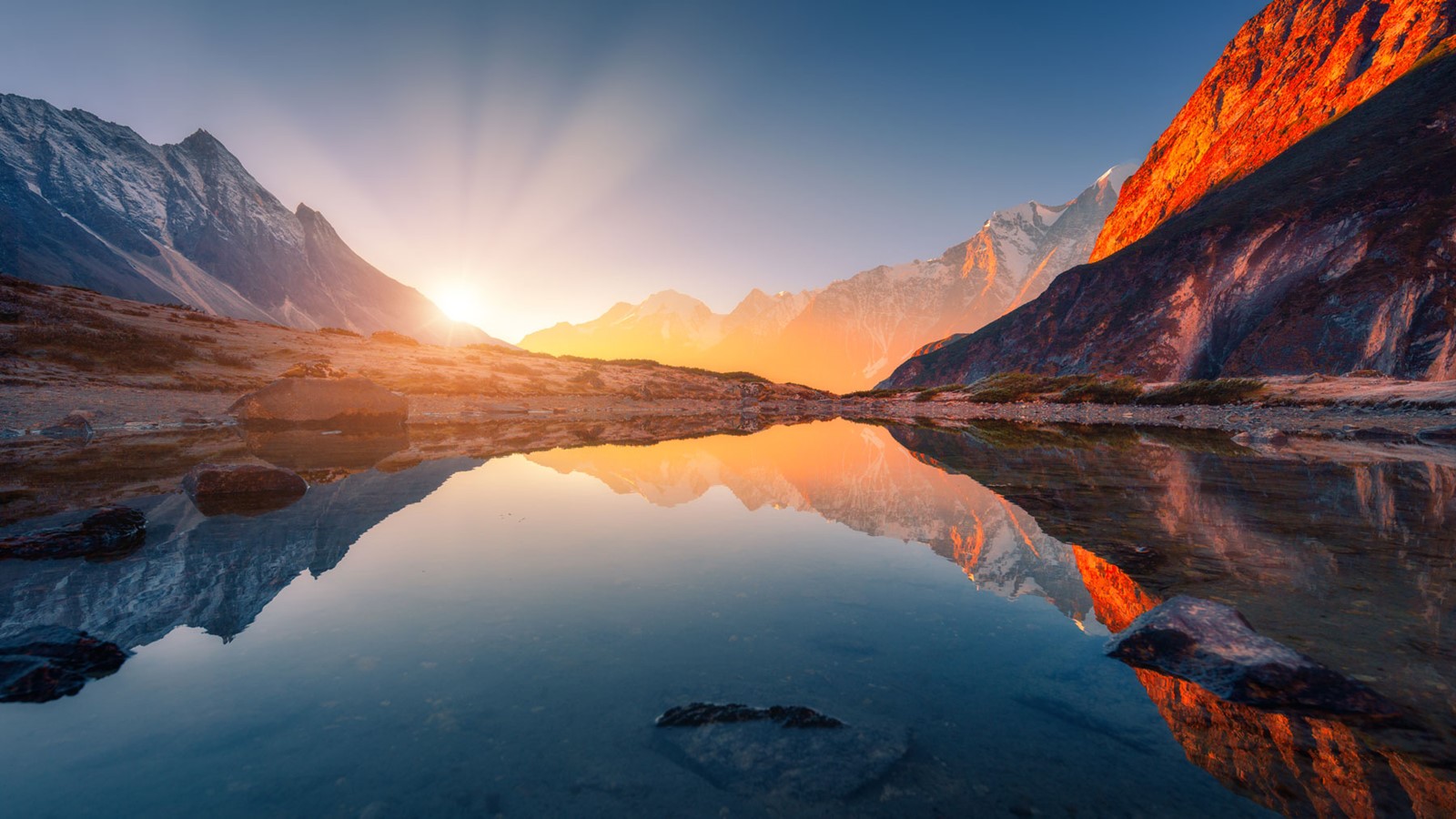A bird flitting across the clear sky, mountains bursting out of the Earth, light dappling on the leaf mould in the woods, primordial silence of the desert, stars glistening across the immense spacetime of the Cosmos.
As far back as I can remember, I have always loved nature and animals; this has deepened over the years and links to my sense of wonder and creativity. My life is infinitely enriched and inspired by contemplating nature both directly, and also through the lens of artistic works inspired by nature, whether that be the paintings of Monet, the music of Sibelius and Janáček, or the poetry of Tagore. And in turn my inspiration brings forth my own works of art, more especially poems. I benefit hugely from mindfulness and Earth touching in walking meditation as practised by Vietnamese Zen Master Thich Nhat Hanh. I adopt a beginner’s mind attitude observing nature directly, with a sense of wonder, and am inspired to write poetry.
Increasingly there has been discussion about nature-deficit disorder and the positive role of green spaces for mental health. However, especially since the COVID-19 situation and lockdowns and associated mental health crisis, a spotlight has been cast on our relationship with the natural environment and how we want to live our lives.
We may reappraise what is good for our mental health individually and at a societal level as well as the wellbeing of the Earth and its numerous living beings. We may choose to change lifestyle, slow down, become activists, spend more time walking in and re-connecting with nature, stargazing, gardening, bird watching and engaging in creative pursuits inspired by nature. There is potential for a much-needed individual and collective shift in values towards a more nature-friendly, sustainable, socially aware and less materialistic economic system and culture with a focus on genuine wellbeing.
In my counselling and therapy work during the past year clients have expressed a concern with the outdoors and restrictions in that during the lockdown. Although I haven’t taken clients outdoors, we may explore their relationship with nature, and besides this, my way of working therapeutically was already informed by my relationship with nature and by nature-focused approaches such as Morita therapy and Nick Totton’s Wild Therapy. I would certainly look at nature in the Gestalt field.
As counsellors and therapists we may think a lot about the therapeutic relationship, but we can also see that life is about relationships of one sort or another, and about connecting – or problems in connecting – whether that means connecting with family, friends, partners, our own and other communities, animals, work, food, our bodies, ideas, books, or connecting with something larger than ourselves, which of course can mean connecting with nature. Research shows the benefits for mental health of connecting, and that includes connecting with nature, certainly true for me.
It's also worth saying that ultimately it makes no sense to talk of connecting with nature as though we were outside nature – we are nature.
Read more...

Part of the natural world
Gemma Lamerton explains that everybody can connect with nature in their own unique personal way. Mental Health Awareness Week 2021

Nature as a therapeutic tool
Through her research and personal experience, Becky Ridgewell has confirmed that being in nature is a necessity. Mental Health Awareness Week 2021

Blogs and vlogs 2021
News, views and updates from our staff, members and counselling clients
Views expressed in this article are the views of the writer and not necessarily the views of BACP. Publication does not imply endorsement of the writer’s views. Reasonable care has been taken to avoid errors but no liability will be accepted for any errors that may occur.
